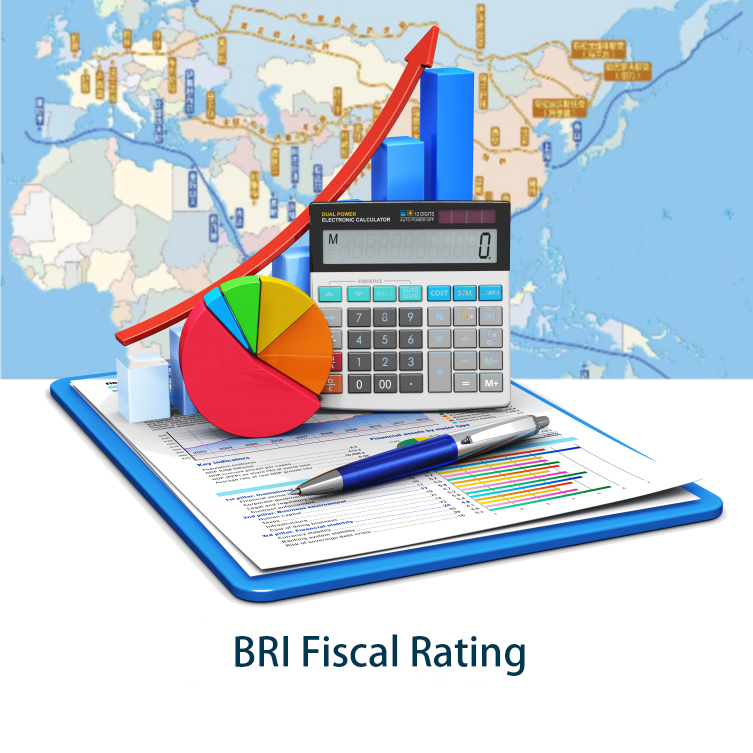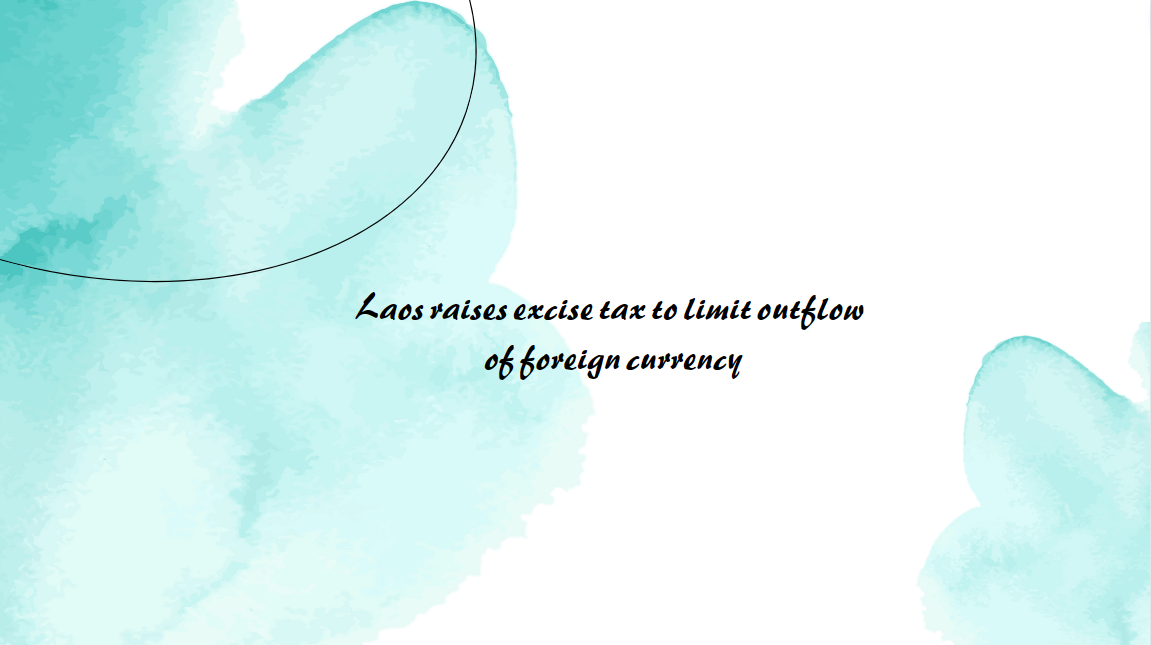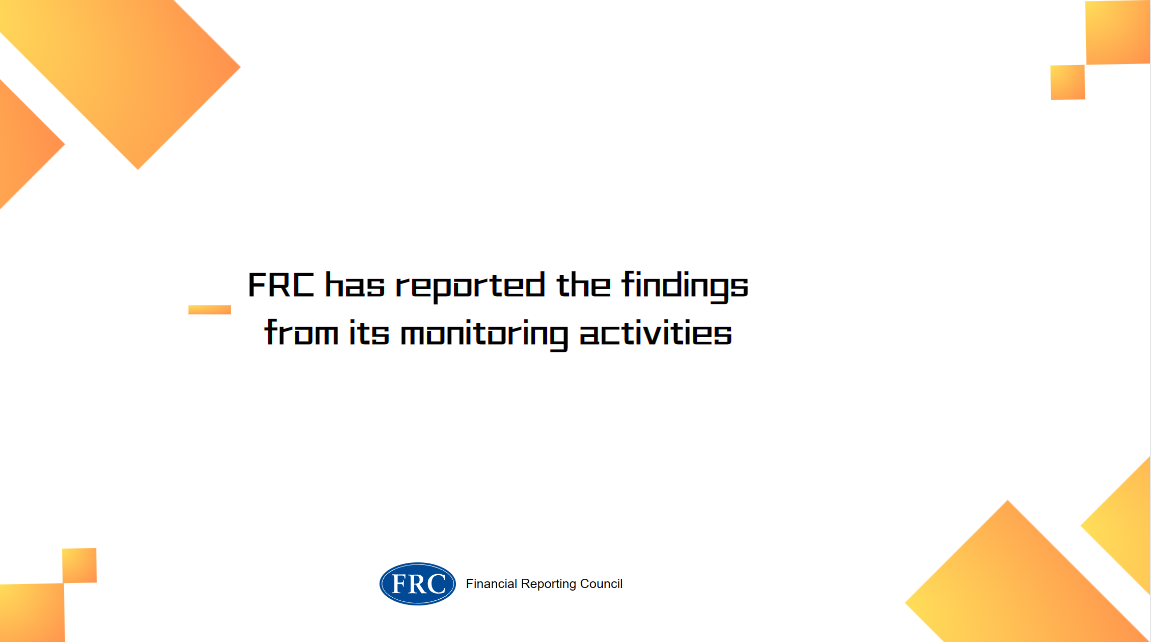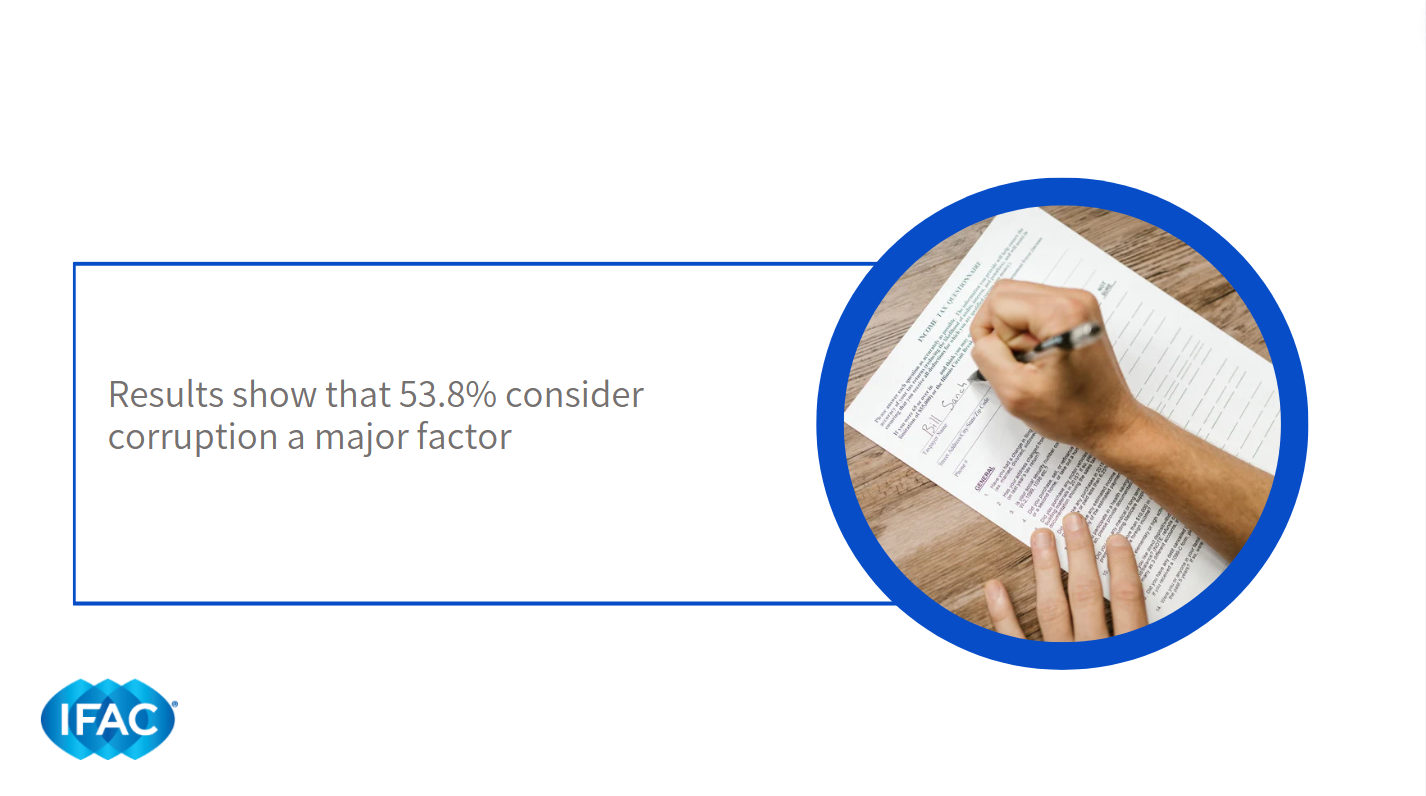Africa Tax In Brief
AFRICA: ATAF AND OECD renew partnership to strengthen tax co-operation in Africa
On 2 November, the African Tax Administration Forum ("ATAF") and the Organisation for Economic Cooperation and Development ("OECD") signed a renewal of their Memorandum of Understanding ("MoU") for a period of five years, agreeing to continue to work together towards the common objective of promoting fair and efficient tax systems and administrations in Africa. Renewed on the occasion of the ATAF Annual Meetings in Cape Town, South Africa, the collaboration will focus on several substantive areas in the fields of tax policy, tax administration, and domestic and international taxation.
ANGOLA: Budget 2024 presented to the National Assembly
Various tax measures have been proposed through the General State Budget 2024, which was presented to the National Assembly on 31 October 2023. Significant proposed changes include:
Direct taxation
·Disallowing depreciation and amortization costs of fixed assets resulting from revaluation as deductions for corporate income tax purposes;
·Prohibiting revaluation amounts recognised directly in shareholders' equity from being distributed as dividends;
·Excluding gains or losses resulting from the fair market value adjustment of all fixed assets and investments in properties for purposes of determining taxable income for corporate income tax purposes;
·Allowing expenses incurred by taxpayers in the agricultural and livestock sectors who invest in infrastructure necessary for the production and marketing of products as tax deductions for a period of five years;
·Increasing the threshold for employment income tax by exempting individual taxpayers who earn employment income of up to AOA100 000 from Employment Income Tax;
Indirect taxation
·Introducing a 10% special levy known as a special contribution on current invisible foreign exchange operations chains ("CEOCIC") to be withheld by financial institutions at the time of making the transfer.
oThe CEOCIC will be applicable to individuals or companies domiciled or headquartered in Angola that request, from a financial institution, fund transfers for payments associated with contracts for the provision of foreign technical assistance services, management, or unilateral operations;
oThe state and any of its governmental bodies, (excluding institutes and public companies) and operators in the oil & gas or mineral resources sectors will be exempted from CEOCIC:
Tax administration
·Introducing a requirement for all corporate income taxpayers to submit their declarations electronically;
·Introducing exceptional regularization of registration where individual taxpayers registered for more than five years and who have not engaged in any activity during the same period are allowed to rectify their registration without payment of fines for non-submission of declarations;
·Introducing a penalty equivalent to the value of the special contribution on financial institutions that fail to retain the CEOCIC; and
·Exempting public companies in liquidation that voluntarily declare and pay social security contributions from paying interest and fines.
ANGOLA: Introduction of a 10% annual tax on canteen revenues proposed by the Provincial Government of Luanda
The Provincial Government of Luanda ("GPL") on 30 October 2023 proposed to introduce a 10% annual tax on revenues generated by canteens that operate within the GPL.
Following the proposal, the GPL initiated the process of registering and reorganising canteens in Luanda with the aim of imposing the annual tax on them. Canteens, including those located in Luanda's remote neighbourhoods, are also required to register their employees with the National Social Security Institute ("INSS") and pay the normal employment income tax ("EIT").
BOTSWANA, MAURITANIA: Peer review reports on transparency and exchange of information on request published
The OECD Global Forum on Transparency and Exchange of Information for Tax Purposes on 8 November 2023 announced eight new peer review reports on transparency and exchange of information on request ("EOIR") for Botswana, Dominica, Latvia, Mauritania, Pakistan, Poland, Serbia, and Thailand.
Key findings and recommendations from the reports include:
Botswana
·The country has made significant strides in implementing the EOIR standard since its previous review in 2019, especially regarding the availability of beneficial ownership information.
·In 2022, Botswana enacted legislative changes, aligning the definition and identification methods of beneficial owners with international standards.
·The Online Business Registration System, initiated in 2019, successfully transitioned the registry of companies from manual to fully automated, facilitating the availability of ownership, identity and accounting information online. While the register has proved proactive in updating data, there are still areas for improvement, particularly regarding the frequency of updates and the extension of anti-money laundering legislation to cover all legal entities.
·Botswana successfully responded within the imparted 90 days to the two requests received, demonstrating the effectiveness of its EOI unit's procedures in addressing previous recommendations.
·While Botswana's experience in EOIR remains limited, its overall compliance rating with the EOIR standard improved from the "Partially Compliant" rating obtained in 2019, to "Largely Compliant" for this latest assessment.
Mauritania
·The country has made progress since its previous peer review in 2016, by expanding its treaty network and introducing new requirements on beneficial ownership through its company and anti-money laundering laws. The Phase 1 peer review report highlights the need for further improvements, particularly in the case where there is a change in beneficial owners, and on the availability of beneficial ownership information for bank accounts.
·While Mauritanian law allows the issue of bearer shares and provides for mechanisms to identify the owners, there are no sanctions in place for a failure to comply with the obligations.
·The implementation of the legal and regulatory framework in practice will be reviewed, and an overall rating assigned, in a Phase 2 review that will take place once Mauritania has sufficiently developed its experience in the exchange of information, and at the latest in 2026.
BURKINA FASO: Finance Law 2023 amended
The transitional parliament of Burkina Faso adopted the Amending Finance Law No. 038-2023/ALT on 5 October 2023 which was promulgated by Decree No 2023-1334/PRES-TRANS on 17 October 2023.
Significant amendments include:
·Exempting deliveries of gold bars to state institutions responsible for the production and marketing of gold from value added tax ("VAT"), with retroactive effect from 1 January 2023;
·Allowing for the refunding of unused VAT credits to mining companies that deliver more than 50% of their gold production to state institutions with effect from 17 October 2023;
·Introducing the following provisions with retroactive effect from 1 January 2023 to 31 December 2023:
oVAT exemption, registration duties, stamp duties, and withholding taxes public orders relating to the purchase of seeds, agricultural inputs, equipment and services, as well as foodstuffs from cooperative companies; and
oCustom duties exemption, VAT, registration and stamp duties, business licence duty on public procurements, and withholding tax on public procurement of the importation and local purchases of war weapons, ammunition, and related military equipment intended for the Defence and Security Forces, including tools, spare parts and lubricants for the maintenance and repair of such materials and equipment;
·Introducing the following provisions applicable from the promulgation of the Amending Finance Law 2023:
oReducing dividend tax from 6.25% to 3% for community companies or businesses during the first three financial years following their incorporation, and
oRemoving the progressive discount rate granted to authorised stamp distributors. The discount will now be determined by order of the Minister of Finance. Digital stamps do not benefit from discounts.
BURKINA FASO: Double tax agreement with France terminated
On 13 November 2023, Burkina Faso's Directorate General of Taxes ("DGI") issued a notice confirming the entry into force of the termination of the 1965 tax treaty with France. Burkina Faso notified France of the termination on 7 August 2023, including that the termination would be effective three months after receipt.
The latest notice provides that the three-month period expired on 7 November 2023 and from 8 November 2023, taxpayers are required to strictly apply the provisions of the General Tax Code in dealings with persons in France (as opposed to the treaty provisions).
Under the terms of the treaty, a notice of termination must be provided by 30 June for termination to apply from 1 January of the following year, which has not been followed by Burkina Faso in ending its application of the treaty. The timing of France's ending of the application of the treaty is uncertain.
CABO VERDE: Finance Act 2024 enacts amendments to Tax Laws
Cabo Verde published the Finance Act 2024, which enacts a series of amendments to various tax laws, on 31 October 2023.
Significant amendments, expected to enter into force on 1 January 2024, include:
Direct taxation
·Reducing the corporate income tax rate by 1% from 22% to 21%;
·Introducing a special taxation regime for groups of companies, under which the transfer of tax losses incurred by a group company to another group member to reduce the overall tax bill is allowed without the prior consent of Cabo Verdean tax authorities (Direcção Nacional de Receitas do Estado; ("DNRE"));
·Extending the carry-forward period for tax losses (previously seven years) indefinitely. Tax loss utilisation continues to be capped at 50% of the taxable profit and the carry-back of tax losses remains impermissible;
·Decreasing the corporate income tax credit, previously available for up to 50% of eligible investments in industrial activities, to 20%;
·Various amendments enhancing the tax administration's authority in the realm of transfer pricing, including introducing a mandatory transactional net margin method (Método da Margem Líquida da Operação) for taxpayers providing short-term accommodation and related services. This method includes adding a fixed return rate to accommodation and related service expenses, as set by the DNRE;
Indirect taxation
·Implementing a self-invoicing system for VAT. The specific procedures governing the system are yet to be delineated through a decree by the government.
CABO VERDE: Special Economic Zone pronounced as non-harmful by UNCTAD
The United Nations Conference on Trade and Development ("UNCTAD") has recently released a report on "The Impact of International Tax Reforms on Special Economic Zones", highlighting the Cabo Verde Maio regime, which has been pronounced as aligned with the OECD Forum on Harmful Tax Practices standards.
Eligible activities within the special economic zone of the Island of Maio include agricultural pursuits, manufacturing industries, transportation, telecommunications, computer and management consultancy, legal and accounting services, head office operations, and more.
CABO VERDE: Efficiency of Tax and Customs Administration strengthened
Cabo Verde has introduced Ordinance No. 47/2023, modernising the rules for requesting, supplying and controlling tax stamps used for sealing alcoholic beverages, cigarettes and tobacco in both imports and national production.
This Ordinance aims to enhance the efficiency of the Tax and Customs Administration and updates Decree-Law No. 40 633 of 4 June 1956 and Decree No. 1447 of 31 December 1961, which originally covered the customs rules for sealing tobacco, cigarettes, alcoholic beverages, and cosmetics. The Ordinance modernises the paper-based system, bringing it in line with international standards by utilising information technology tools for the secure marking and control of taxed products.
CȏTE D'IVOIRE: Simplified procedures for VAT on digital platforms implemented
The Cȏte d'Ivoire Directorate General of Taxation ("DGI") has published Explanatory Note No. 03949/MBPE/DGI/DLCD-SDL/ 10-2023 of 9 October 2023 on the implementation of the system for subjecting online sales platforms and digital services to VAT in accordance with amendments introduced by Finance Law 2022.
The explanatory note provides clarifications on:
·The scope of VAT applicable to the provision of online digital services and commission received by digital intermediary platforms;
·The simplified procedure for remote VAT registration; and
·The simplified declaration procedure and online VAT payment modalities.
GHANA: Budget Statement 2024 presented to Parliament
On 15 November 2023, the Finance Minister presented the 2024 Budget Statement to the parliament.
Significant proposed amendments include:
·Requiring invoices issued from the VAT Certified Invoicing System as a basis for income tax deductions;
·Increasing the tax-free individual income threshold and introducing a simplified tax return for individuals in the informal sector under the Modified Taxation Scheme;
·Reducing the VAT rate applicable to commercial properties from 15% to 5% and extending the zero-rating of VAT on locally manufactured African textile prints and locally assembled vehicles for two years;
·Waiving import duties on the import of:
oelectric vehicles for public transportation (for eight years);
oraw materials for local manufacture of sanitary pads;
oagricultural machinery and equipment; and
omedical consumables and raw materials for the pharmaceutical industry; and
·Reviewing the Stamp Duty Act, 2005 (Act 689) to expand ad valorem tax bands and increase specific rates.
KENYA: Guidance on applying for withholding VAT exemption issued
The Kenya Revenue Authority has published a Step-by-Step Guide on "How to Apply for Withholding Vat Exemption", dated 31 October 2023, which was provided as part of the Finance Act 2023 for registered manufacturers with an investment of at least KES3-billion in the previous three years.
The application process is available on the iTax portal and, upon approval at the respective Tax Service Office, the system will generate a withholding VAT exemption certificate which will be communicated to the taxpayer's iTax registered email address.
MAURITIUS: Partial exemption claim denied by Assessment Review Committee
On 24 October 2023, the Assessment Review Committee ("ARC") ruled in favour of the Mauritius Revenue Authority ("MRA") in the case of Alteo Energy Ltd ("Alteo" of "the Company") (ARC/IT/217-21).
Alteo, a company engaged in the production and sale of electricity, derived income from the sale of electricity as well as interest from an inter-company loan, car loans advanced to staff and on treasury account during the year ended 30 June 2019.
It claimed an 80% exemption on interest income in accordance with the Second Schedule to the Income Tax Act, which provides that, in order to qualify for an 80% exemption, a company should:
·Carry out its core income-generating activities in Mauritius;
·Employ directly or indirectly an adequate number of suitably qualified persons to conduct its core income-generating activities; and
·Incur a minimum expenditure proportionate to its activities.
The Company's claim for an 80% exemption on interest income was denied by the MRA on the basis that the interest income represents about 0.25% of the total income of the company and as such was not derived from the company's core activities. Alteo, on the other hand, argued that the test to be satisfied was whether the core income-generating activity insofar as it relates to the production of interest income is performed by the company in Mauritius.
The ARC ruled in favour of the MRA and held the view that to benefit from the exemption, what needs to be considered first is the substance of the activities of Alteo. As such, Alteo had to satisfy all three conditions laid down above and, since the interest income only represented 0.25% of the total income for the year, it could not be said that the interest income was derived from the core income-generating activities of the Company.
NAMIBIA: 2023/24 Mid-Year Budget Review announces tax amendments
The Namibian Minister of Finance presented the 2023/24 Mid-Year Budget Review in Parliament on 31 October 2023. Significant proposed tax amendments include:
·Reducing the non-mining corporate income tax rate to 31% effective from the 2024/25 tax year and a to 30% in 2025/26 tax year;
·Launching an internship tax incentive program aimed at incentivising employers to enrol more interns by providing an additional corporate income tax deduction;
·Reviewing taxation of the insurance sector;
·Strengthening the audit and compliance capabilities of Namibia Revenue Authority (NamRa);
·Not providing any further extension of the Tax Relief programme whereby interest and penalties will be fully written off if outstanding capital is settled by 30 October 2024; and
·Renegotiating Namibia's double tax agreements in accordance with Namibia's trade profile.
NIGERIA: Tax Appeal Tribunal rules that interest and penalties do not apply to timely contested VAT assessments
The Tax Appeal Tribunal ("TAT") Lagos Zone recently ruled in the case of MTN Nigeria Communications Plc v. Federal Inland Revenue Service ("FIRS") that interest and penalties do not apply to additional assessments of VAT that a non-resident taxpayer validly objected to within the stipulated statutory period.
The TAT found that the provision of software licenses and upgrades by the taxpayer who was not located in Nigeria was a taxable supply of goods or services for VAT purposes because such services were consumed in Nigeria. However, it held that the tax authority cannot impose interest and penalties on additional VAT assessments that the taxpayer objects to within the statutory period for objection. The assessment does not become final and conclusive once timely objected to by the taxpayer.
NIGERIA: Nationwide VAT and withholding tax compliance monitoring exercise commenced
The FIRS has issued a public notice announcing a nationwide VAT and withholding tax compliance monitoring initiative to be implemented from 23 October 2023. This notice is issued to all taxable persons and agents including non-governmental organisations (NGOs), ministries, departments and agencies (MDAs) of government at the federal, state and local levels.
The compliance monitoring exercise will:
·Review VAT and withholding tax records of selected taxpayers; and
·Cover the 2019 to 2022 accounting years for taxable persons whose records have been audited by the FIRS up to the 2018 accounting year, while those whose records have not been audited up to 2018 will have their prior years included in the exercise.
The selected taxable persons or tax agents to be visited by the FIRS shall be notified and documents required for the exercise shall be listed in the letter to the affected entities. Taxable persons and tax agents are required to remit deducted VAT and withholding tax to the FIRS within two weeks from the date of the issuance of this notice.
RWANDA: New personal income tax rates introduced
The Rwanda Revenue Authority recently issued an announcement confirming that the new personal income tax (PAYE) rates introduced as part of the new Income Tax Law published in October 2022 will apply from the November 2023 tax period, which must be declared by 15 December 2023.
TOGO: Finance Law 2023 adopted
On 6 October 2023, the National Assembly of Togo adopted the amending Finance Law 2023. The Law, which is currently awaiting promulgation includes an exemption from customs duties, VAT and import levies for the importation of new electric motorcycles.
UGANDA: Guidelines on Implementation of Digital Service Tax issued
Through a public notice published on its website on 20 October 2023, the Uganda Revenue Authority ("URA") issued guidelines on the implementation of digital service tax ("DST"), which came into effect on 1 July 2023).
The guidelines provide that:
·Non-residents are required to:
oApply for registration of income tax unless they are already registered with the URA;
oFile quarterly returns declaring the revenues earned within 15 days of the subsequent month after the end of each quarter of the calendar year; and
oPay a 5% tax on the revenues earned and filed before the end of the 15th day of the subsequent month after the end of each quarter of the calendar year;
·Residents are required to:
oWithhold tax on payments made to non-resident suppliers of digital services that are not registered with the URA under the electronic services tax regime; and
oFollow the list of registered non-residents under the electronic services tax regime which is published on the URA web portal to confirm if they are required to withhold tax applies.
The content of this article is intended to provide a general guide to the subject matter. Specialist advice should be sought about your specific circumstances.






















































First, please LoginComment After ~